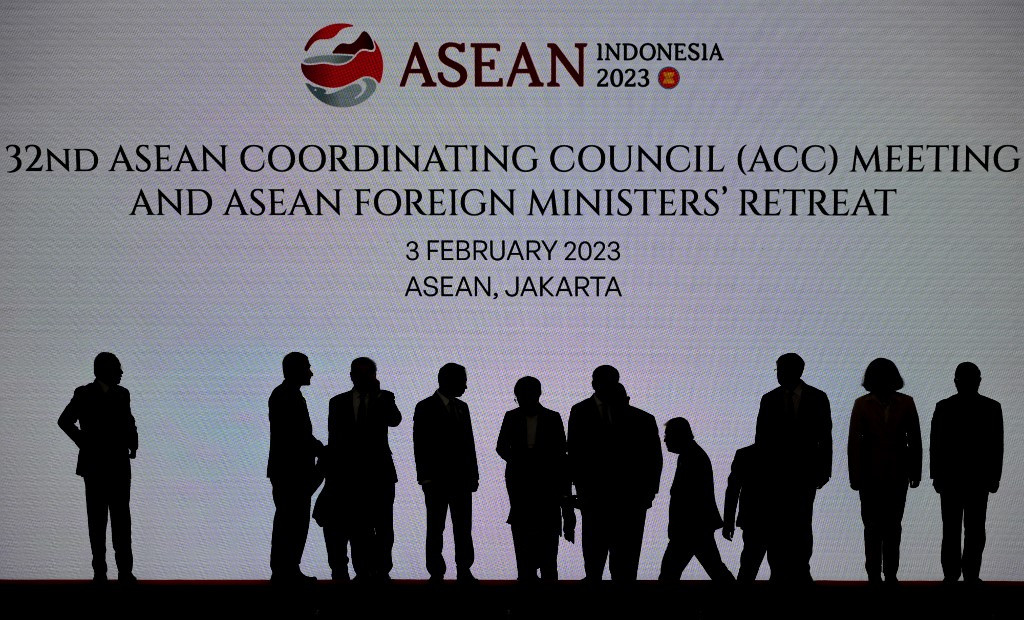Menu

ASEAN Secretary General and Foreign Ministers (except Myanmar) prepare to pose for a group photo during the 32nd ASEAN Coordinating Council meeting in Jakarta on February 3, 2023. Foreign ministers attending: (AFP/Bay Ismoyo)
Indonesia secured one of the largest climate investments in the world during its Group of 20 presidency. Still, there are signs of concern regarding Indonesia’s modest ambition. More robust target and strategy will be the key drivers in attracting more clean energy investments.
Indonesia has placed itself in a global position by holding the ASEAN chairmanship in 2023, after successfully hosting the G20 Bali Summit in 2022. As the new ASEAN chair, Indonesia finds on its plate the 2025 ASEAN targets on renewable energy (RE) and energy efficiency (EE) as reflected in the ASEAN Plan of Action for Energy Cooperation (APAEC) Phase II: 2021-2025, on top of the G20-initiated programs, such as the Just Energy Transition Partnership (JETP), a financing scheme to retire the country’s coal power plants.
With its gross domestic product (GDP) of US$1.28 trillion, the Indonesian economy is the largest in Southeast Asia. Indonesia’s population makes up 40 percent of the total ASEAN population. Its large population reflects on the total final energy consumption (TFEC) equaling 22 million tonnes of oil equivalent (Mtoe), or a quarter of ASEAN’s TFEC (87 Mtoe) in 2020, indicating that the country could set higher clean energy targets and nationally determined contributions (NDCs).
***
This article was published in thejakartapost.com with the title “Indonesia’s leadership in ASEAN’s energy transition”. Click to read: https://www.thejakartapost.com/paper/2023/02/08/indonesias-leadership-in-aseans-energy-transition.html.
